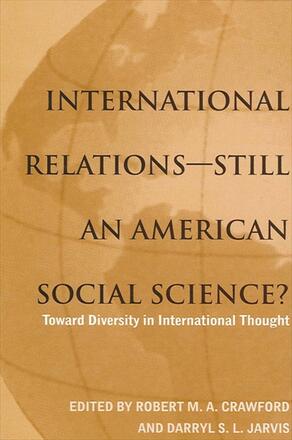
International Relations--Still an American Social Science?
Toward Diversity in International Thought
Alternative formats available from:
Challenges the parochialism and "Americanization" of the field of International Relations.
Description
This book is a valuable evaluation of the propensity toward parochialism in international thought. It analyzes the implications in terms of how the "problems" of international relations, the theoretical tools constructed to deal with them, and the direction of theoretical debate often reflect the unconscious bias of the national domains in which these intellectual activities are conducted. It scans the breadth of the contemporary discipline, broadly attempting to take its pulse and assess the contours of its new diversity.
Contributors include Pal Ahluwalia, Chris Brown, Molly Cochran, Robert M. A. Crawford, Roger Epp, Martin Griffiths, A. J. R. Groom, Teresa Healey, John M. Hobson, K. J. Holsti, Darryl S. L. Jarvis, Peter Mandaville, Mark Neufeld, Kim R. Nossal, Terry O'Callaghan, Jan Pettman, Tony Porter, James Richardson, Roger Spegele, and Michael Sullivan.
Robert M. A. Crawford is Assistant Professor in the Arts Program at the University of British Columbia. He is the author of Regime Theory in the Post-Cold War World: Rethinking Neoliberal Approaches to International Relations. Darryl S. L. Jarvis is Lecturer in International Relations at the University of Sydney, Australia. He is the author of International Relations: Defending the Discipline.